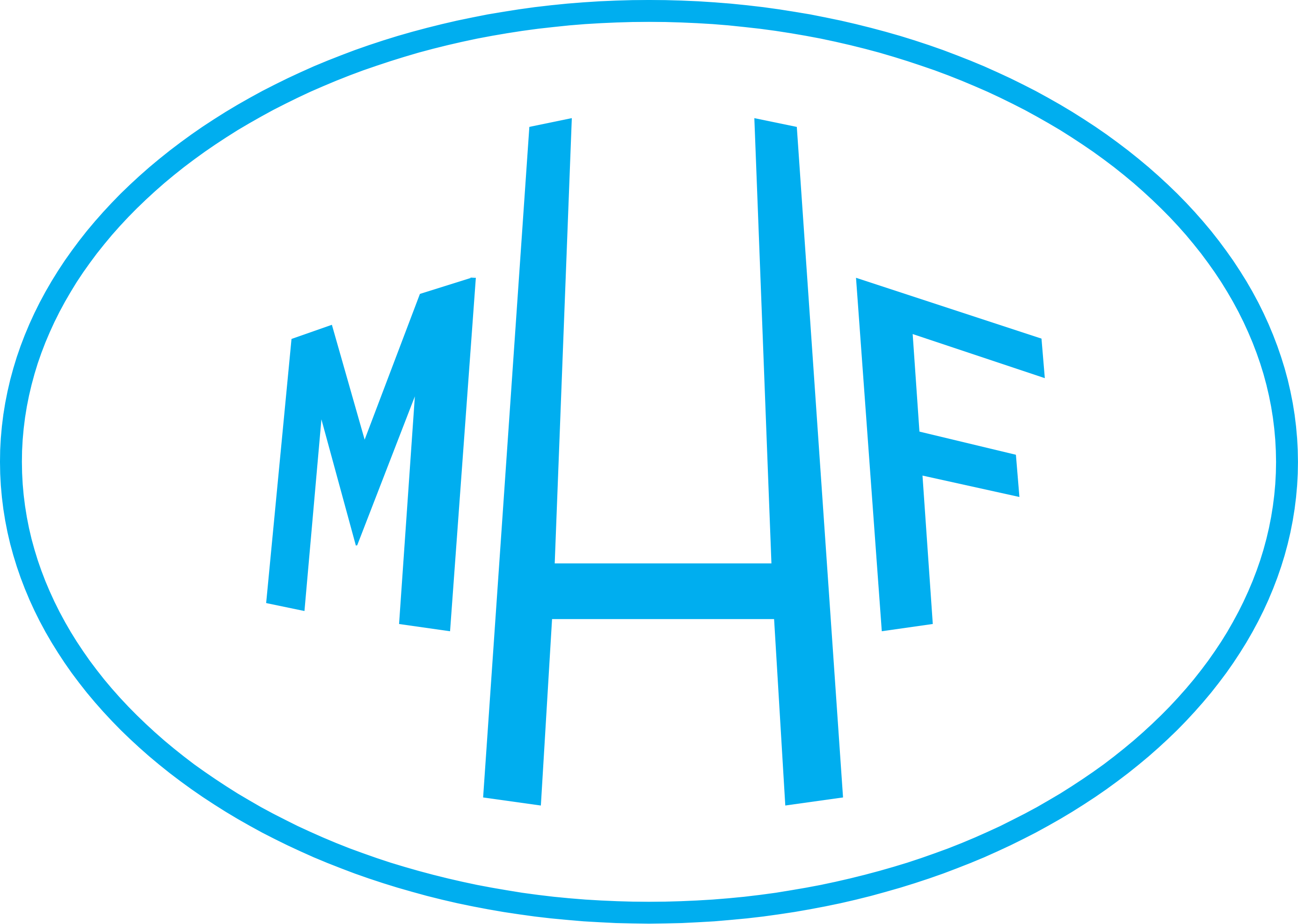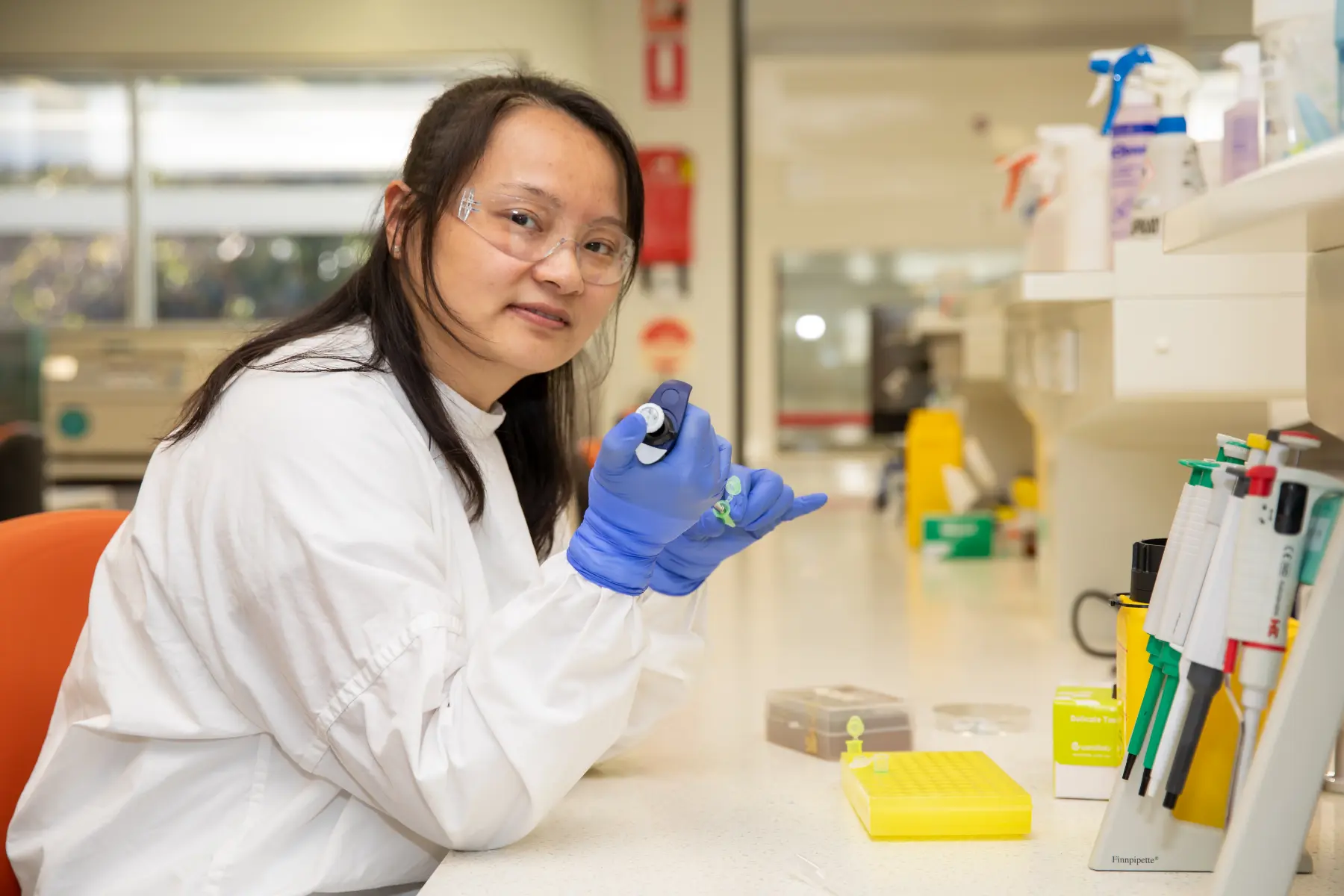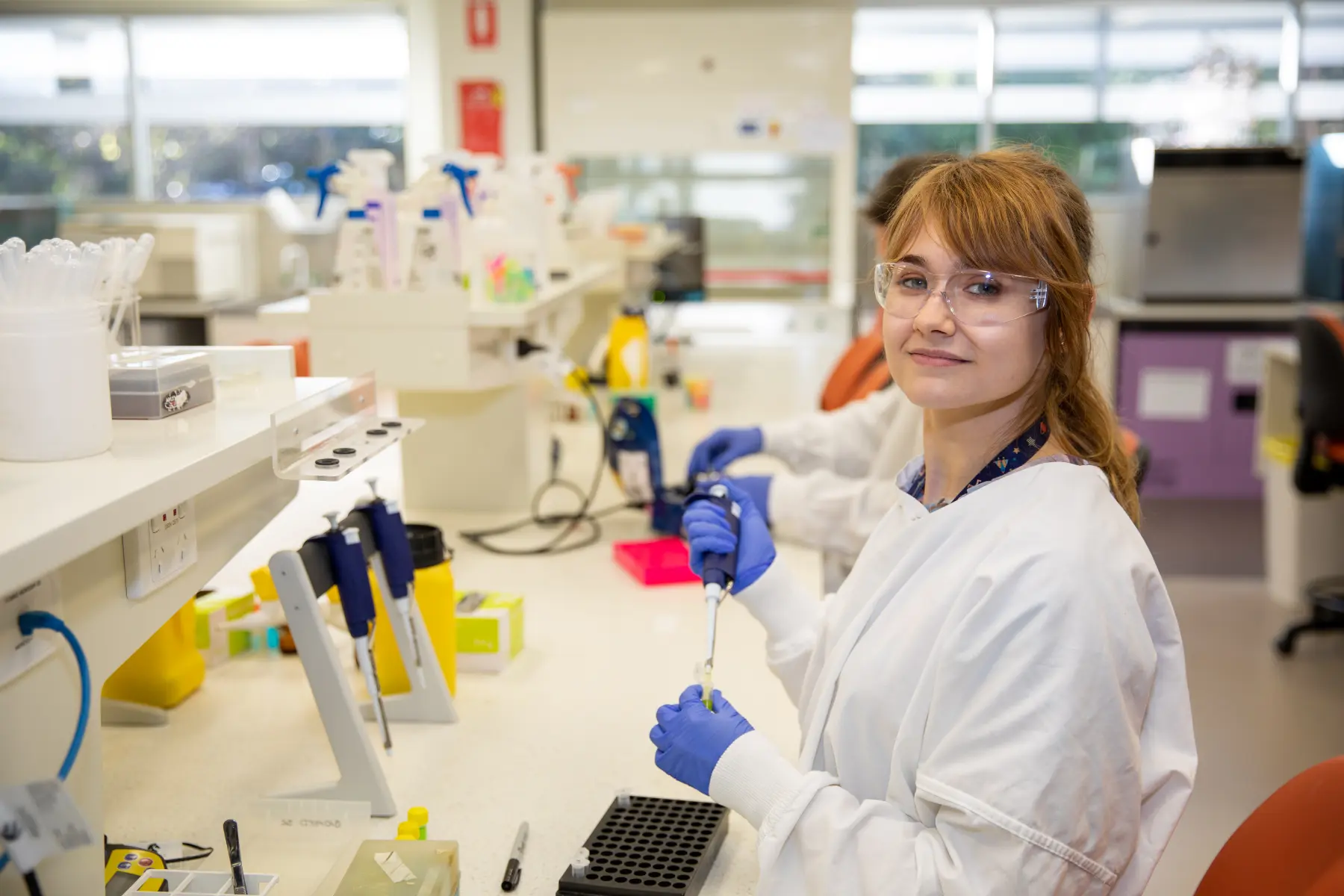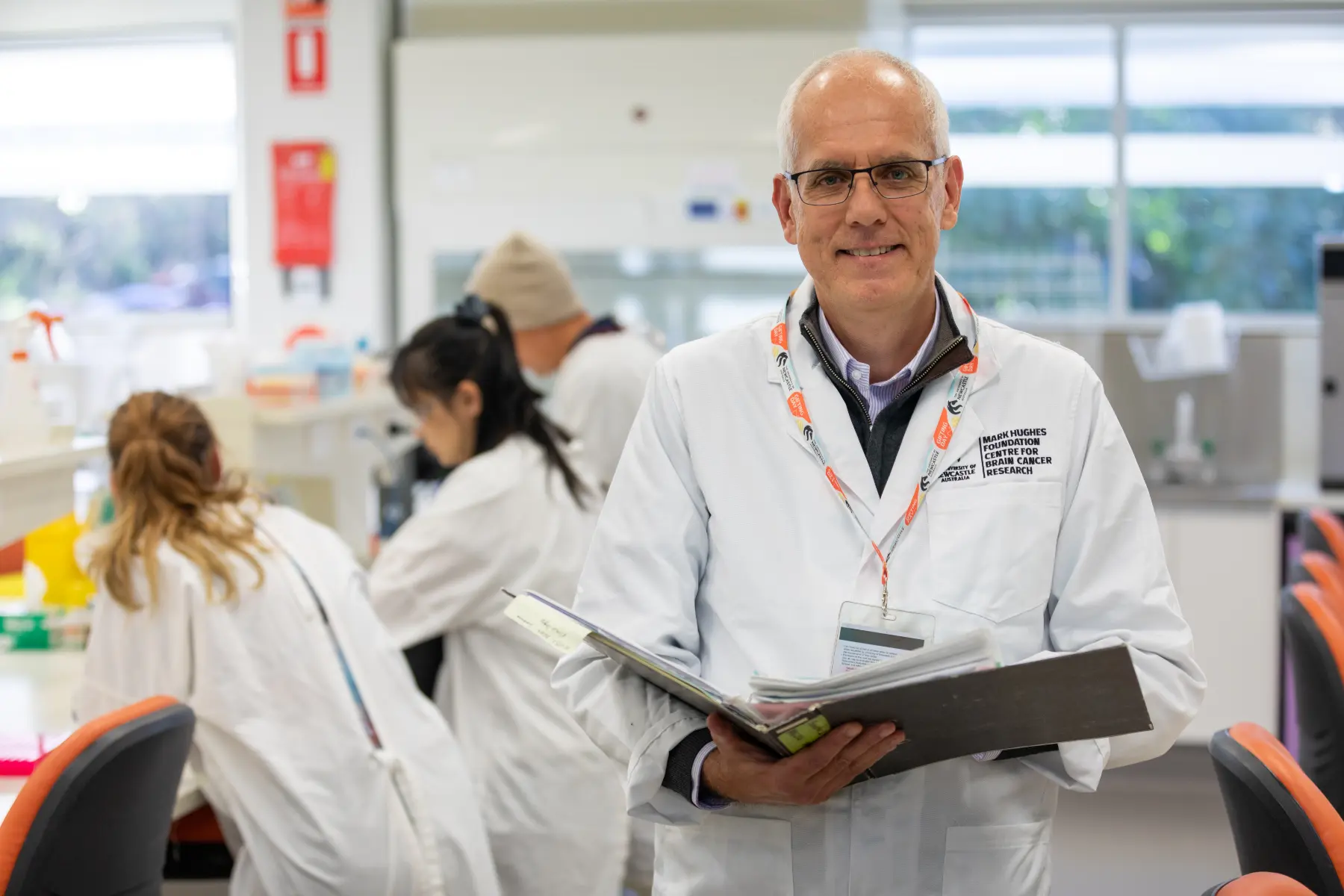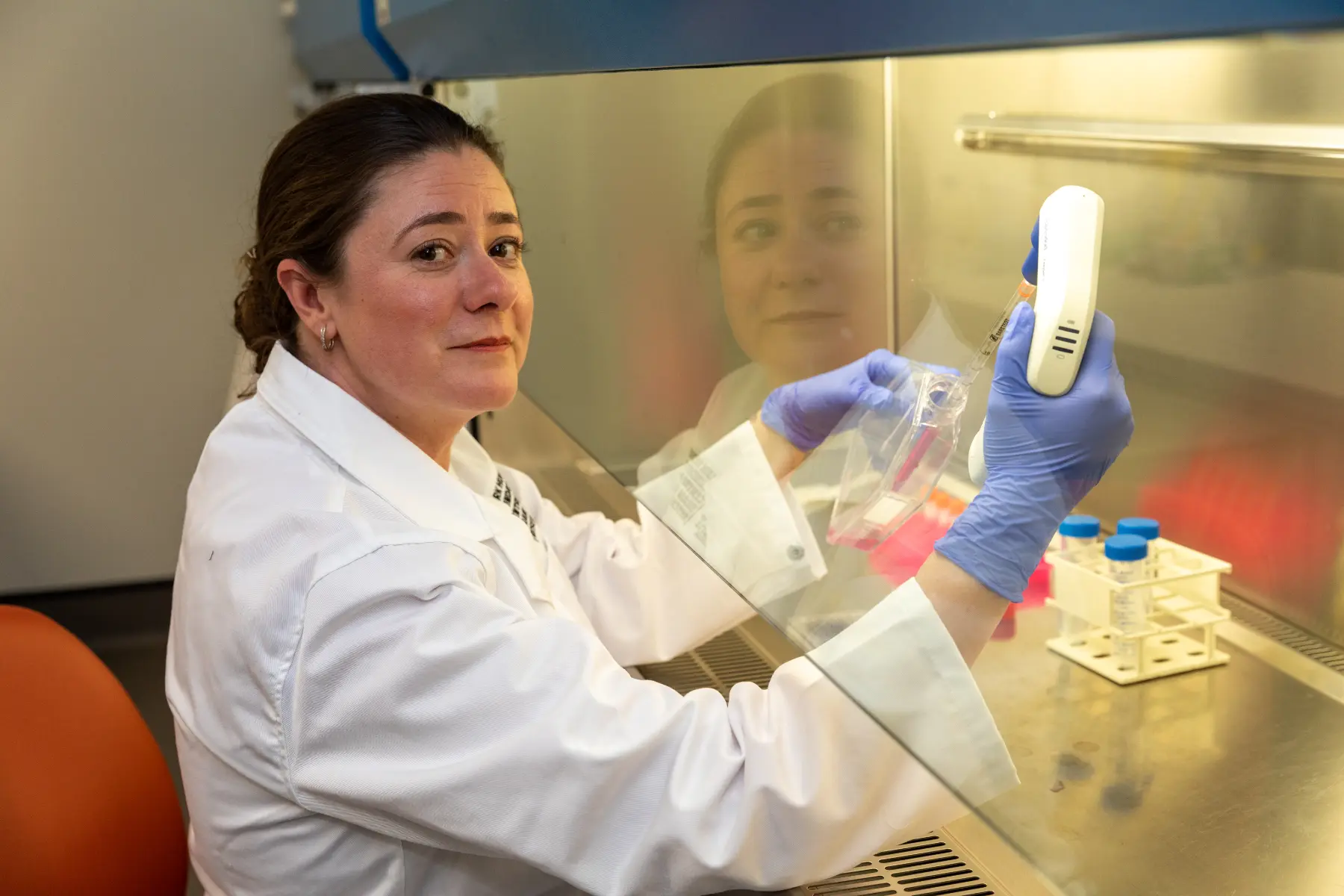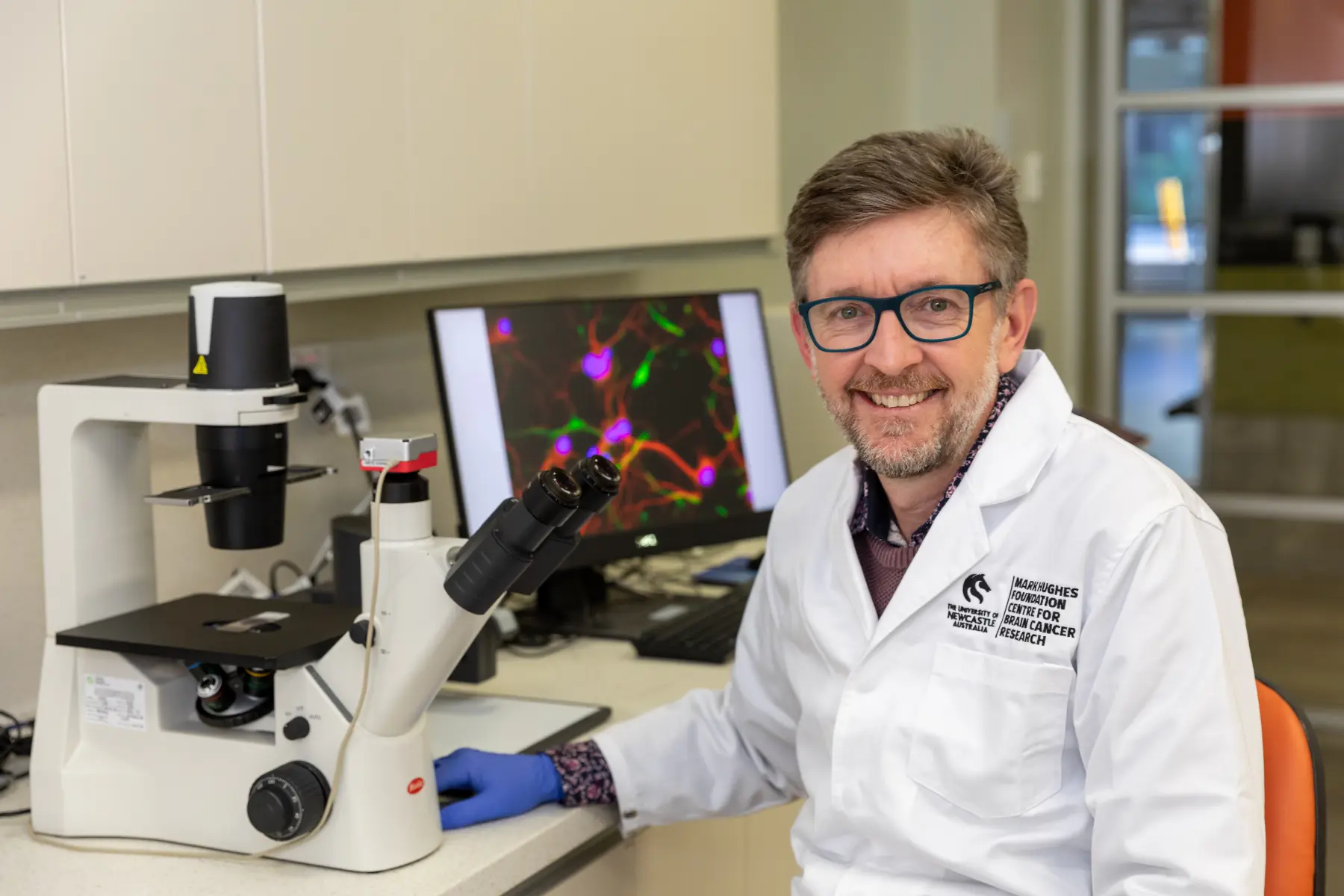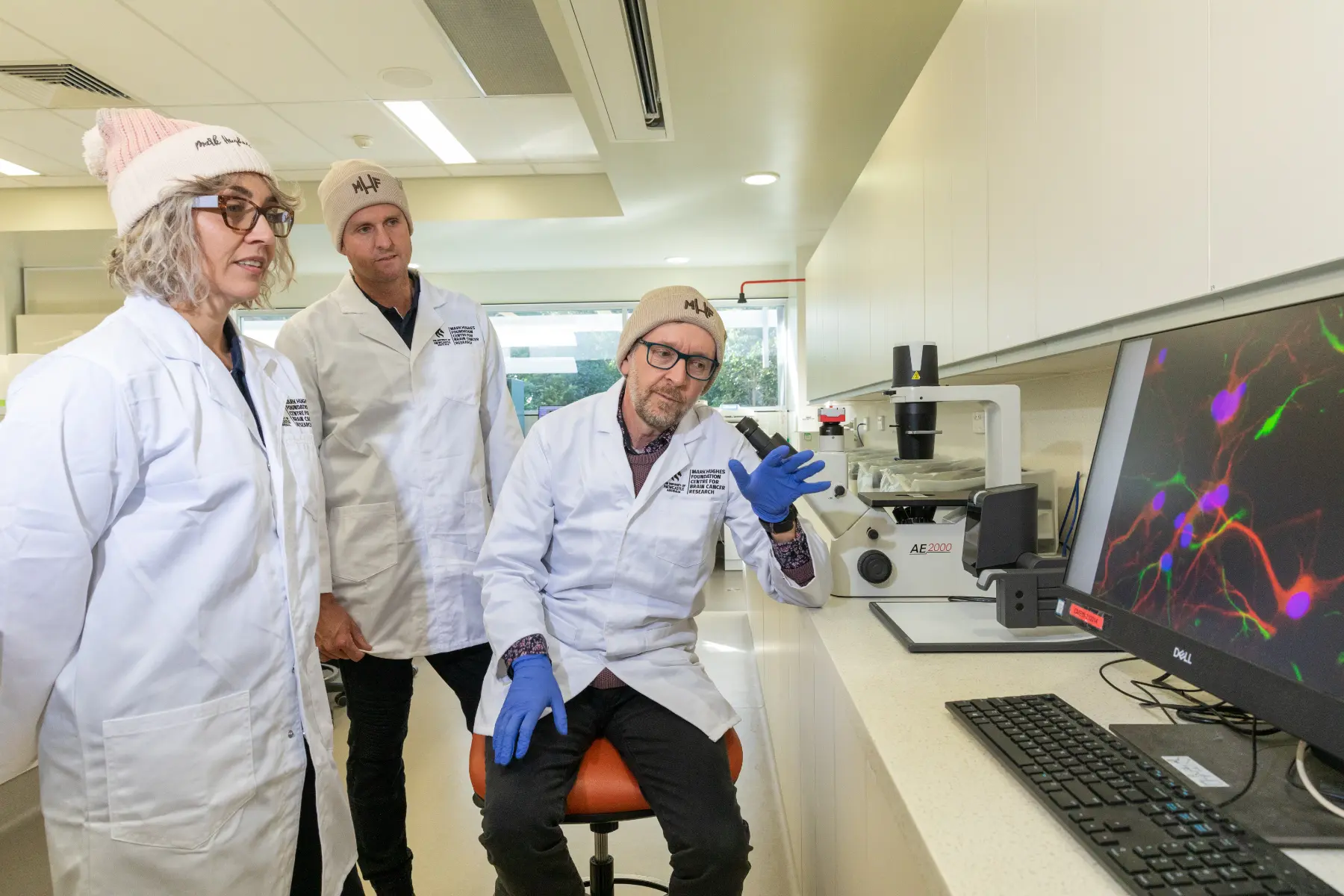Project Title: Novel targets for paediatric brain tumour immunotherapy
Project Start Date: 1/01/2021
Project Expected End Date: 31/12/2022
Chief Investigator: Professor Anthony Purcell; Monash University, Victoria
Co-Researcher(s): Dr Pouya Faridi
Project Summary:
Imagine if we could develop a vaccine or other immunotherapy to treat the most aggressive childhood brain cancer.
Diffuse Intrinsic Pontine Glioma (DIPG) is the most aggressive childhood brainstem tumour with no cure and a median survival of only 9 months post-diagnosis. Cancer vaccination is an exciting emerging approach for such untreatable cancers that programs the patient’s immune cells to recognise short fragments of proteins (peptides) present on the tumour surface bound to Human Leukocyte Antigen (HLA) molecules. The team has preliminary evidence to suggest that various aspects of DIPG biology, gene mutations and the effect of radiation treatment combine to form unique targets for immunotherapy. Selecting the most appropriate peptides is critical for successful vaccination.
The team is using their world-leading immunopeptidomics capabilities to form a pre-clinical data package for paediatric brain tumour immunotherapy, leading to testing in patients in the future.
Project Progress:
The team is making excellent progress and has completed detailed immunopeptidomes of several patient derived DIPG cell lines and they have identified various classes of antigens. A manuscript describing this work and the impact of inflammation is being prepared.
The team has also verified the conditions for radiation treatment and has made baseline proteomic measurements to identify changes in antigen expression. The team is excited at the richness of the current data – they have identified various potential antigens and their potential T cell epitopes which means they have plenty of options for further testing as they move these exciting findings steps closer to testing in patients. They are looking for further funding for this next stage of the work. For example, they have found including several nerve antigens highly expressed in the tumours but not in normal healthy brain.
Such antigens could form targets for immunotherapy (e.g., CAR-T approaches, Bispecific antibodies in addition to vaccination).
Acknowledgement of donor:
From Professor Anthony Purcell “We are progressing well and as the PI I am very pleased with the scope of antigens we have discovered. This bodes well for the functional work we are initiating and future translational approaches in DIPG. Currently, this is the sole source of funding for this work, so what we have achieved would not be possible otherwise. We look forward to acknowledging MHF in our manuscript and publicising the research at that point.
